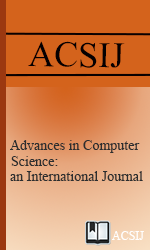Energy Efficient Static Clustering Algorithm for Maximizing Continues Working Time of Wireless Sensor Networks
Abstract
Sensor nodes should be made cheap and small due to application modes. As a result, the nodes always suffer from limited energy source. On the other hand, increased network operation period is considered as a measure to evaluate the performance of sensor networks, which motivates the designers to provide a method to increase the lifetime of sensor networks. So far, various methods were provided to manage and reduce energy consumption in a sensor network. Clustering is the most prominent method in this regard. In this paper, the optimal number of clusters to minimize energy consumption was calculated by assuming that the sensor nodes were distributed randomly and uniformly in the medium. Then, the network was divided into a grid consisting of an optimal number of clusters. A cluster head was selected in each cluster in order to facilitate data collection process and transfer the data to the sink in a multi-hop communication. Clustering method used in the proposed method was static. As a result, optimum dimensions of clusters were calculated based on the one-hop optimal distance. Simulation results showed relative improvement of the proposed method, which were in line with those obtained from analysis of network continuous working time.
Keywords
Wireless sensor network; Energy consumption; Lifetime; Clustering
 Advances in Computer Science : an International Journal
Advances in Computer Science : an International Journal







